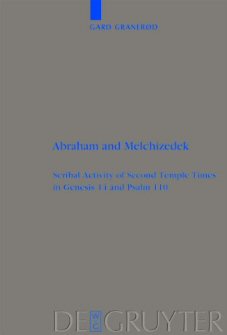Steven Duncan
- Under the category of Christian Group, this book would be better described as "Reformed" than "Evangelicals." From a thorough Amazon review: "As Strange returns to the missional nature of his theology of religion the thinking of Van Til again takes center stage." Also: "Despite the entirety of Strange’s thought being distinctly Reformed, this chapter displays the more familiar Reformed doctrines of soteriology and predestination. Though insightful, the reliance on Reformed thought from Romans 9-11 will provide a major split for some evangelical readers." Also: "In conclusion, Their Rock Is Not Like Our Rock is a tour-de-force of Reformed theology towards other religions."
- A quick check of Wikipedia will show that William Barclay, in his own autobiography, expressed "scepticism concerning the Trinity: for example "Nowhere does the New Testament identify Jesus with God." " He also wrote, "I am a convinced universalist. I believe that in the end all men will be gathered into the love of God." He sounds more like a Unitarian Universalist than the group Logos puts him, "Christian Group: "Reformed." I am firmly of the opinion that Logos should include this sort of bigraphical information in the "About the Author" section.
- A quick check of Wikipedia will show that William Barclay, in his own autobiography, expressed "scepticism concerning the Trinity: for example "Nowhere does the New Testament identify Jesus with God." " He also wrote, "I am a convinced universalist. I believe that in the end all men will be gathered into the love of God." He sounds more like a Unitarian Universalist than the group Logos puts him, "Christian Group: "Reformed." I am firmly of the opinion that Logos should include this sort of bigraphical information in the "About the Author" section.
- Yeah I take all of Barclay's writings with a grain of salt and a heaping dose of discernment. There are some good things in there, you just have to keep a watchful eye.
- It's worth reading everyone, reviewers incuded, with wisdom, discernment and a 'hermeneutic of suspicion'.But I wouldn't want Logos to be putting approval ratings on the relative, or otherwise, orthodoxy of writers. Who judges the judges, and where would it stop? Like any, conventional, bookshop, the works are there as they are. Reviews can be sourced, if the samples aren't enough of a guide. If I come across what the Australians might term 'ratbag' authors, I leave them alone. If I wind up with them through carelessness, well, I take them off my shelves.
- Be aware, the publication date is 1901, and the Russian alphabet has changed since then (4 letters were discontinued in 1917-1918 in conjunction with the Communist revolution). I am happy to have the chance to purchase this book, because I have many Russian books that use the older Russian alphabet, and books that explain the older alphabet are hard to come by. If you are looking to read Russian that predates the Communist revolution, than this is a great find!
- I've not seen І, Ѳ, or Ѵ used before. What is the fourth discontinued letter? Is it Ъ, Ь or something else?
- The fourth letter was " ѣ " named " Yat " originally had a distinct sound, but by the middle of the eighteenth century had become identical in pronunciation to 〈е〉 in the standard language. Since its elimination in 1918, it has remained a political symbol of the old orthography. [http://en.wikipedia.org/wiki/Russian_alphabet#Letters_eliminated_in_1918]
- Thanks. Now that you mention it I should have seen it under the soft sign. I guess I thought it was a font variant of the hard sign, forgetting that was listed above a few letters higher. The most interesting thing about your posts is about yet another shibboleth, a change in a language just for political reasons, to show who is in and who is out.
